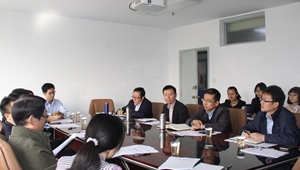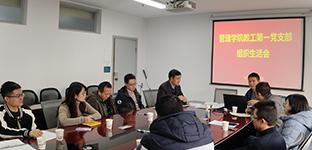Impact of customer impatience on a production service system
题目:Impact of customer impatience on a production service system
作者:
Kangzhou Wang (兰州大学/Lanzhou University)
Shulin Lan (香港大学/The University of Hong Kong)
Zhibin Jiang (上海交通大学/Shanghai Jiao Tong University)
期刊:International Journal of Production Research (Impact factor:1.69), 2016, 54(9), 2731-2749.
英文摘要:
In this paper, we explore the impact of customer impatience on the performance of a production service system that consists of one production inventory subsystem and one service subsystem. It is inevitable that the un-storability of service makes customers wait in the production service system. Waiting for service easily leads to impatient behaviors. The impact of two kinds of impatient behaviors balking and reneging on the production service system performance is examined. The problem is formulated as a Markov system, then the stationary probability of the system is derived to conduct the performance evaluation. The results show that customer impatience has the different impact patterns on the two subsystems (i.e. production inventory subsystem and service subsystem) of the production service system. Specifically, customer impatience leads to the performance improvement of one subsystem along with the performance deterioration of the other subsystem. Meanwhile, service capacity plays an important role in the in fl uence extent of customer impatience on the system performance. In addition, lower customer impatience does not necessarily improve system profit. Therefore, the management of the production service system with impatient customers will be more intractable. Some managerial insights and suggestions are proposed.
中文简介:
制造服务化模式下,企业同时从事生产和服务活动,所运营的供应链由产品供应链和服务供应链共同组成。由于服务的不可存储性,必然导致顾客等待发生,因此研究了顾客不耐烦行为对供应链绩效的影响。重点考虑了顾客的止步行为和中途退出行为,构建了产品服务供应链的稳态结构。研究发现,顾客不耐烦行为对供应链中两个子供应链绩效的影响方式不同。特别地,顾客行为在导致一个子供应链绩效提升的同时,会导致另一个子供应链绩效的恶化。在顾客行为对供应链绩效的影响程度方面,企业的服务能力扮演了重要角色。此外,较低的顾客不耐烦行为不一定会改善供应链绩效,因此,制造服务化模式下供应链的管理难度将大大增加。随后,基于Wharton商学院Cachon教授和Terwiesch教授提出的供需匹配的视角,分别从供给侧的企业能力管理和需求侧的消费市场中顾客管理提出了应对以上问题的方法,并指出了基于杜克大学Zipkin教授发表于Management Science的研究成果的应用。
网址链接:
http://china.tandfonline.com/doi/full/10.1080/00207543.2015.1126680
http://dx.doi.org/10.1080/00207543.2015.1126680





















